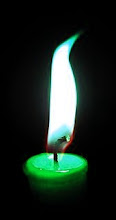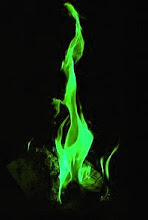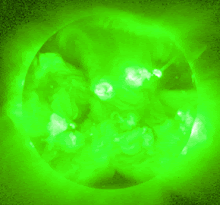Thursday, August 19, 2010
Spoken Like Poetry
(1 of 4)
Spoken by Teri:
We can’t live without water.
In Kentucky we live in a forest with forty to fifty inches of rainfall a year,
And can’t get a clean drink of water.
That’s a sad story.
And to think we have allowed one industry
-One industry-
To take it away from us.
You cannot continue to destroy the most diverse hardwood forests in the world,
Leaving deserts on top of these mountain ranges,
And expect to have water for the southeastern part of the United States.
You can live without coal.
You can live without oil.
You can live without gas.
But you cannot live without water.
This material originally appeared in Plundering Appalachia: The Tragedy of Mountaintop-Removal Coal Mining. The book was edited by Tom Butler and George Wuerther and it was published by Earth Aware Editions in 2009. The material was printed as a transcript of a spoken interview. I copied the transcript verbatim then I edited it by simply changing the sentences in paragraphs to lines in a “poem”.
Emerald
Labels:
Appalachia,
Coal Mining,
Nature,
People,
Poetry,
Water
Wednesday, August 18, 2010
Spoken Like Poetry
(2 of 4)
Spoken by Pam:
Speaking as a person in education,
Recently in the news they’ve been putting out all these reports that the counties
Richest in coal are the
Poorest counties in the state.
We should have every piece of technology in the world in this school.
Our school should not do without anything.
We didn’t even have enough money to pay for a music teacher this year.
That’s not progress.
I had a music teacher when I went to school forty years ago.
These kids shouldn’t have to do without anything.
They’re hauling all that coal out of here,
And the kids are suffering these consequences,
And they can’t play on their roads;
They have no sidewalks.
Our schools should be state-of-the-art,
And we don’t have a music teacher.
This material originally appeared in Plundering Appalachia: The Tragedy of Mountaintop-Removal Coal Mining. The book was edited by Tom Butler and George Wuerther and it was published by Earth Aware Editions in 2009. The material was printed as a transcript of a spoken interview. I copied the transcript verbatim then I edited it by simply changing the sentences in paragraphs to lines in a “poem”.
Emerald
Labels:
Appalachia,
Coal Mining,
Education,
Music,
People,
Poetry,
School
Tuesday, August 17, 2010
Spoken Like Poetry
Spoken by Lucious:
The second time they flooded this holler,
It had rained for about two weeks,
Seemed like every day.
They had about five or six dams built up there
And they had coal piled up in it.
And they was going to clean that pond, that pit of coal up,
And what they had was loose dirt piled up to hold that water in there.
When they sunk that backhoe bucket in that loose dirt all that water pressure,
It all come down through here.
You talk about something awful.
Car tires.
Trees.
Logs.
Car hoods.
Everything.
‘Cause it used to be a garbage dump up there.
Everything come down
And you talk about something stinking.
Good God almighty.
This material originally appeared in Plundering Appalachia: The Tragedy of Mountaintop-Removal Coal Mining. The book was edited by Tom Butler and George Wuerther and it was published by Earth Aware Editions in 2009. The material was printed as a transcript of a spoken interview. I copied the transcript verbatim then I edited it by simply changing the sentences in paragraphs to lines in a “poem”.
Emerald
Monday, August 16, 2010
Spoken Like Poetry
Spoken by Judy:
My daddy was a mountaineer before he was a coal miner.
God made mountaineers.
Man – and greed – made coal miners.
I’m sorry but that’s the truth.
My daddy mined coal to make money.
I prize my sense of being a mountaineer,
My sense of place more than I prize the money that coal mining brought,
And if I knew then what I know now,
I would rather my father have lived off the land.
I would rather not have had any materialistic things,
because my father suffered mightily from black lung.
It broke his body.
It broke him.
He died six months after he retired.
And coal does that to people.
It breaks a man’s back.
It breaks his spirit.
You see what it does to people –
That they’re willing to allow their children to be poisoned so that they can make a living.
Coal does bad things to you.
This material originally appeared in Plundering Appalachia: The Tragedy of Mountaintop-Removal Coal Mining. The book was edited by Tom Butler and George Wuerther and it was published by Earth Aware Editions in 2009. The material was printed as a transcript of a spoken interview. I copied the transcript verbatim then I edited it by simply changing the sentences in paragraphs to lines in a “poem”.
Emerald
Sunday, August 15, 2010
Wood Thrushes at Night Fall
Thrushes are the last singers of the day
They sing the woods to sleep
Mysteriously, melodiously they call into the dusk
At times one will sing a liquid tune
Then others join in overlapping duets and trios
The near ones seem to stop and listen
And others are heard in the velvet distance
Stillness overtakes the woods
Thrushes are the last birds to fall silent
Going quiet here and there
One by one they cease singing
Like the gentle blinking out of fireflies
Copyright July 2003
eMeRaLD Effect Enterprises
Saturday, August 14, 2010
Friday, August 13, 2010
Subscribe to:
Comments (Atom)



























